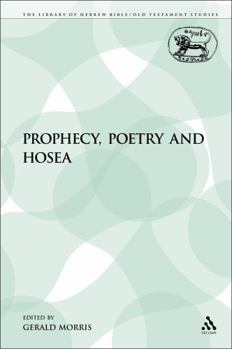Prophecy, Poetry and Hosea
Select Format
Select Condition 
Book Overview
The books of the Latter Prophets have traditionally been treated as persuasive speeches, and interpreted according to their rhetoric. At the same time, interpreters recognize the poetic form of much prophecy. This study takes up the notion of the 'prophet' as 'poet', focusing on word-play in Hosea and on the lyrical plot of that book; the case is made for treating Hosea as a stark, full-length poem of inexhaustible power.
Format:Paperback
Language:English
ISBN:0567044564
ISBN13:9780567044563
Release Date:November 2009
Publisher:Sheffield Academic Press
Length:167 Pages
Weight:0.54 lbs.
Dimensions:0.4" x 6.1" x 9.2"
Customer Reviews
0 rating





